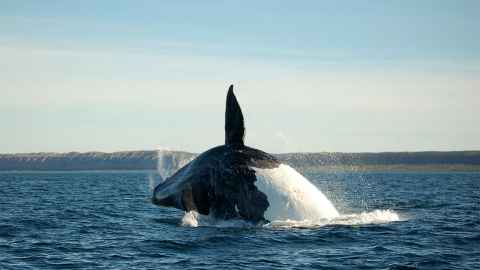From sea snails to right whales: a walk on the wild side of statistics
25 November 2020
The study of wild animals, and in particular threatened species, generates an enormous amount of data which can be analysed to provide a more accurate picture of how they are faring.

Professor Rachel Fewster is a world-leading statistician in the area of statistical conservation and ecology whose work in wildlife monitoring and population genetics plays a key role in protecting New Zealand’s most vulnerable species.
She works in all aspects of ecological statistics, from applied to mathematical, and runs the citizen science project CatchIT which involves thousands of ordinary New Zealanders in trapping and monitoring pests. Data entered into CatchIT, as well as data from projects worldwide involving species ranging from tiny invertebrates to whales, forms the basis of her research.
In a free public lecture at the University of Auckland, Professor Fewster will talk about how more New Zealanders can be encouraged to engage regularly with conservation initiatives, and how huge volumes of data from those projects can be leveraged to protect vulnerable species.
Professor Fewster was fascinated by the natural world as a youngster and after studying mathematics at the University of Cambridge, completed a PhD in statistical ecology at the University of St Andrews in Scotland.
She moved to New Zealand for post-doctorate study at the University of Auckland in 1999, and says that somehow she has never left. She is also an enthusiastic educator and won a national teaching excellence award in 2009.
This lecture will be held at 6pm on Monday 30 November in Engineering Lecture Theatre 401, Building 401, 20 Symonds St. You can register for this event.
Media contact
Anne Beston | Media adviser
DDI 09 923 3258
Mob 021 970 089
Email a.beston@auckland.ac.nz